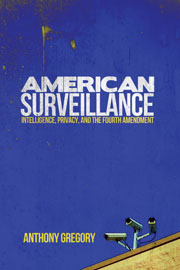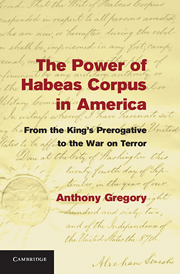A clear majority of Americans now want to see marijuana legalized. Fifty-six percent believe it should be treated like alcohol or tobacco. Only thirty-six percent defend the status quo. What’s more, the trend has been moving towards the pro-legalization position, and continues to do so.
It is about time. The entire drug war is a monstrosity, a crime against the Bill of Rights, the greatest contributor to gang violence, a wholesale attack on our civil liberties and the right of individuals to control their own bodies. Characterizing drug problems as a criminal justice issue has been an unmitigated failure, except for serving law-enforcement special interests, growing the bureaucracy, and deepening the pockets of drug kingpins who profit off this madness.
Marijuana criminalization always rested on the flimsiest of grounds. Fear of blacks and Hispanics fueled the hysteria. So did conflicting propaganda about how marijuana would make American youth violent, yet also make them docile and unable to serve in the Armed Forces.
If marijuana is not the most benign recreational drug known to humanity, it is near the top. Alcohol kills tens of thousands of Americans a year. Tobacco kills hundreds of thousands. Pot directly kills zero.
Scientists measure the lethality of a drug by its therapeutic index. The TI gauges how many effective doses of a drug it takes to kill the median user. Alcohol’s TI is somewhere around ten. Caffeine’s is approximately one hundred. Marijuana’s is a matter of conjecture, since it’s been extrapolated from studies with lab rats and other such methods. But scientists estimate its TI somewhere between 1,000 and 40,000. In other words, marijuana is somewhere between a hundred and four thousand times less lethal than alcohol.
This is not to say that smoking pot has no negative side-effects. Long-term users can easily fritter their time away, satisfied to bask in the high rather than doing something productive. This is a danger with other drugs too, including alcohol, as well as with many other activities like watching sports or playing video games. But the answer is not jail time or a federal program aimed at reforming individuals from these poor habits. A free society does not use police power to deal with frivolousness of youth.
The responsible way a civil society can handle drugs, regardless of how dangerous they are, is through community institutions. Many Americans want nothing to do with drugs. Private organizations can discourage use. Property owners can exclude behavior they dislike from their premises. Meanwhile, those seeking help can get it from doctors, churches, family, and friends without fear of persecution.
My prediction is that if marijuana were legal, most of the hysteria would subside, as would much of the romanticism surrounding its use. People who are stoned all the time to the detriment of their work or family life would be seen in a similar light as those who abuse alcohol, but tempered recreational use would have neither the forbidden-fruit appeal nor the stigma that characterizes pot use today.
No result of legal cannabis could be as bad as what we have now. The violence in Mexico is reason enough to legalize the stuff immediately. A large part of the illicit drug trade is aimed toward supplying Americans with the marijuana they demand. About 50,000 people have been murdered down south in the last few years, mitigated not at all by Washington’s drug war agenda that it pushes on Latin American countries against their will.
Marijuana prohibition has also, outrageously, resulted in the suffering of patients who use it for legitimate medical purposes. It has been used as medicine for five thousand years by ancient cultures ranging from China and India to Assyria and Greece. Homer, Herodotus, and Theocritus all wrote about its beneficial medical effects. It is an analgesic, an anti-inflammatory, and an anti-nausea treatment. Many patients don’t even smoke it—which is the most harmful aspect of the drug’s administration—instead opting for vaporization or edibles. For many treatments, it has no superior substitutes.
Right now, 3/4 of Americans—including 2/3 of Republicans—want the federal raids against state-legalized medical marijuana dispensaries to end. These raids started under Clinton. George W. Bush said in the 2000 presidential campaign that, in the name of states rights, he would stop the raids. Instead, he ramped them up. Obama promised to stop them, and then he escalated them further. Since October 2009, the Obama administration has executed over 170 SWAT raids of dispensaries.
If ever there was an issue where a president was out of touch with the American people, especially with those in his own party, the war on marijuana is it. When Obama’s administration opened a website for the public to petition the government on various issues, the most popular demand was for pot legalization. Obama blew it off like it wasn’t a serious proposal.
Obama is not the first liberal president to betray Americans on marijuana. Ever since Franklin Roosevelt signed the Marijuana Tax Act of 1937, the Democrats have often been as vociferous drug warriors as conservative Republicans. Paternalistic progressivism has kept the drug war going. When all the liberals on the Supreme Court upheld the federal medical marijuana crackdowns in 2005, they did so on the grounds that the federal power, even when it was exercised unwisely and cruelly, could not be constitutionally limited in the area of drug use.
The last three presidents have done marijuana. They have all punished others for using it—even for medicinal purposes. The war on pot is hypocritical and immoral. It needs to end. Now that the majority of Americans have voiced the sensible position on this issue, we can hold out some hope. Unfortunately, the prison and police lobbies want to keep this calamitous crusade going. The war on pot is a lynchpin for the rest of the drug war. The DEA and Drug Czar require marijuana to be included in their data on illicit substances, which they use to make the drug problem appear as big as possible.
This is a question of Washington, D.C., pit against individual liberty, public health, community standards, and foreign countries. If the American people want to end the misery of the war on pot, it will take more than a casual opposition to the laws. We must rally against the entire prohibitionist mindset and the cult of absolute power.








